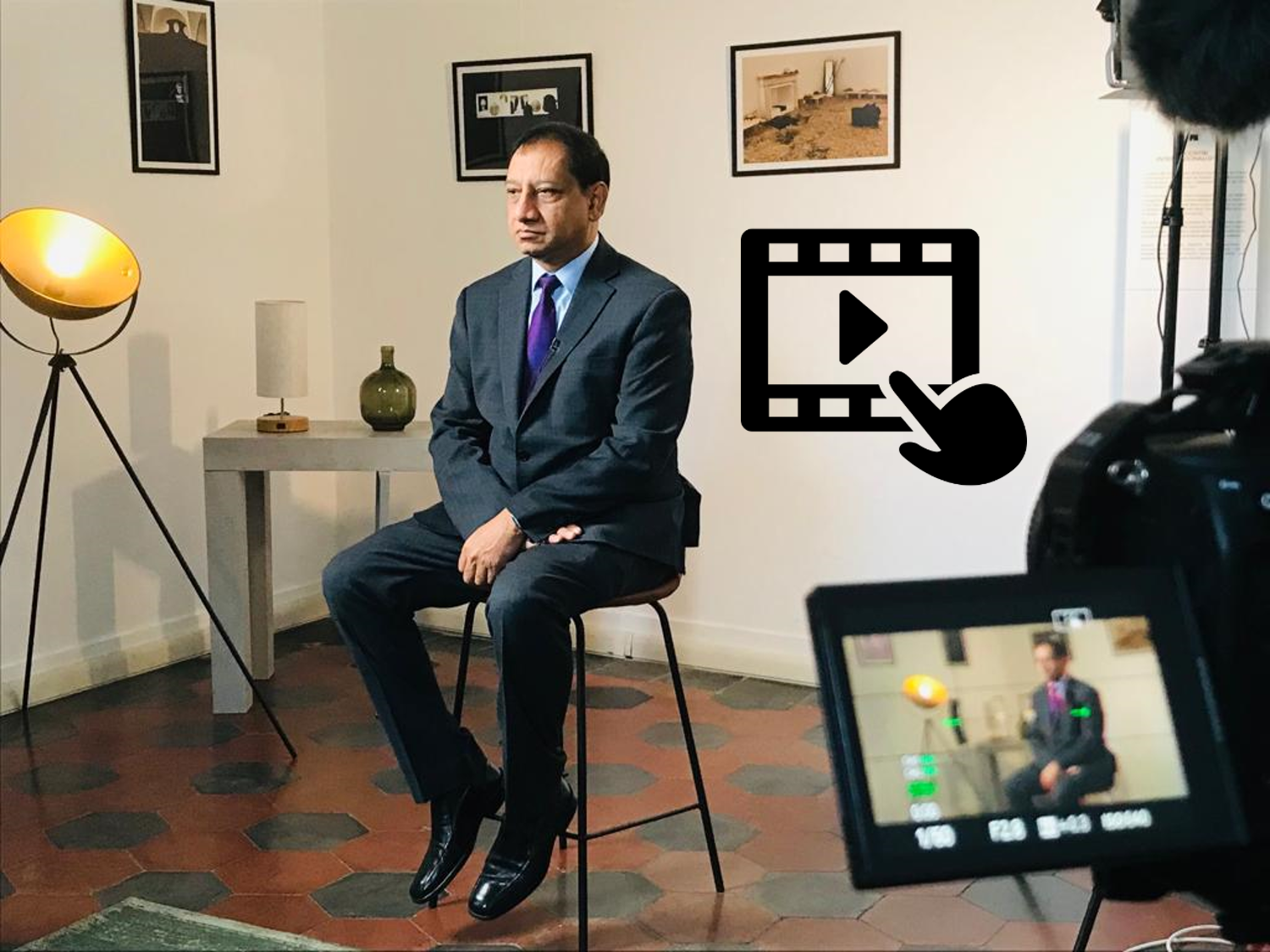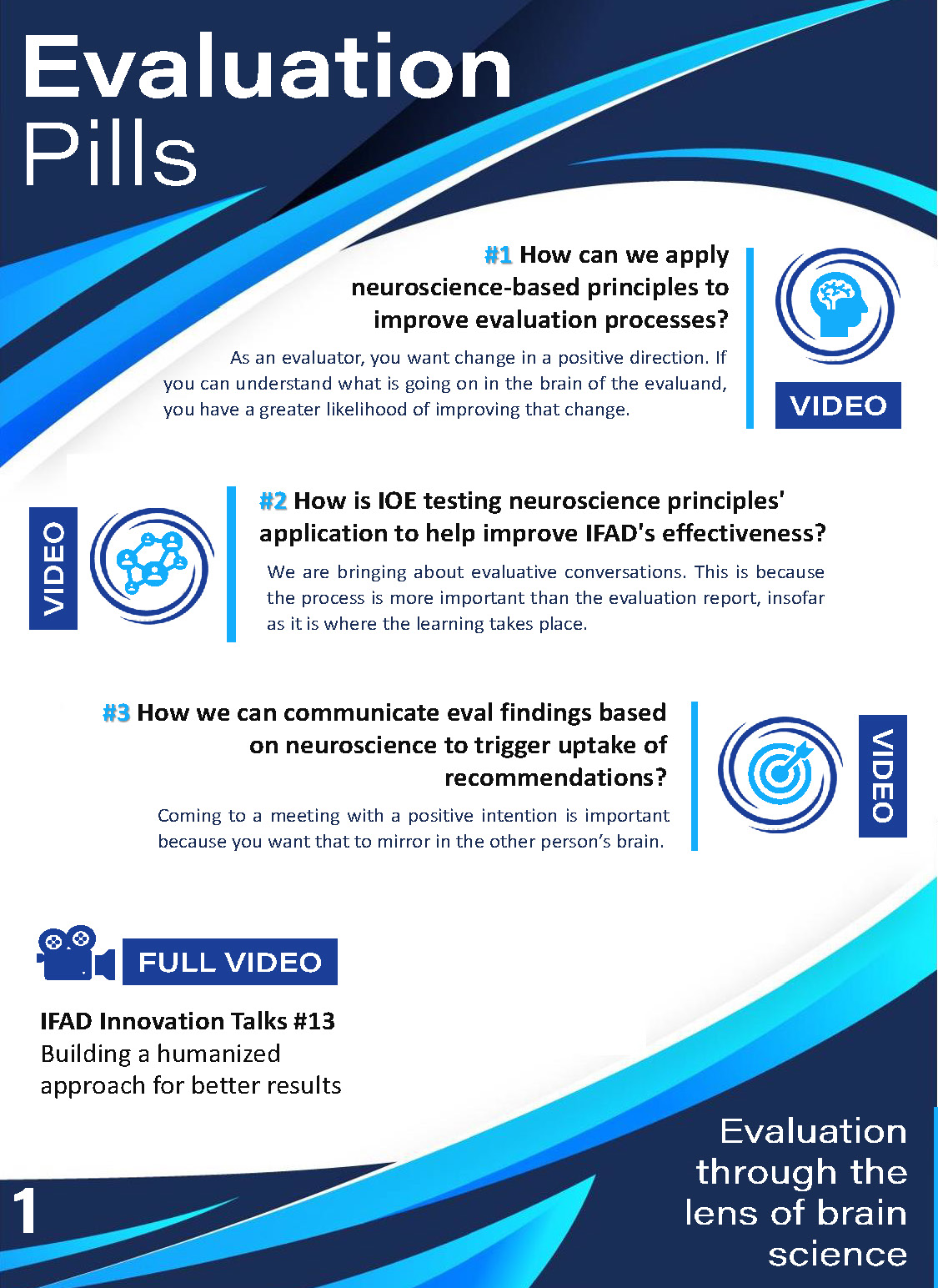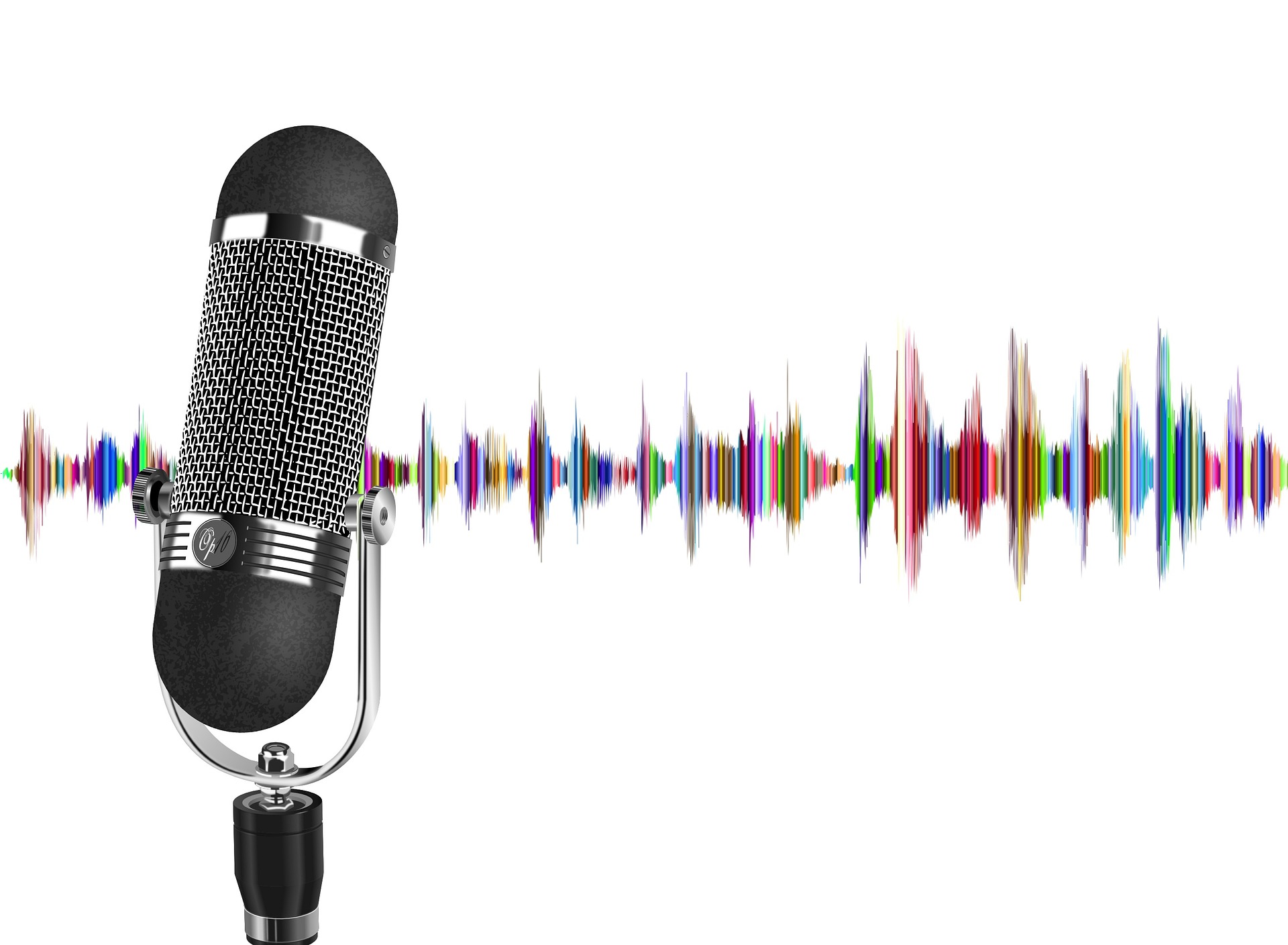Emotional intelligence: the (missing) link between evaluators and management - IOE
Rome, 27 April 2023 – “You can be strong technically, but if your emotional intelligence is not adequate you will neither be a good evaluator nor a good manager”. Indran A. Naidoo, Director of the Independent Office of Evaluation of IFAD (IOE), drove home this message during an interactive session with students of the European Institute of Innovation for Sustainability (EIIS). Dr Naidoo explained that while having strong technical skills is fundamental, because they help cement the legitimacy of an evaluator – case in point, 50% of IOE professional staff have a PhD – these intellectual assets are only one element of what makes for a good evaluator.
Held on 27 April 2023, the questions and answers session with the IOE Director was an integral component of the ‘Measuring and Evaluating Food Sustainability’ module of a new a post-graduate certificate programme on ‘Food and Sustainability’. Co-designed by IFAD and EIIS, the certificate program is structured to help shape the future leaders of food by providing them with the necessary tools to analyse the food system, understand its complexity and develop solutions to concretely fix it at the company, consumer, and institutional levels. To this extent, the programme covers all the main aspects related to food, from sustainable agriculture to nutritional challenges, food policy, food education and many more. In addition to Dr Naidoo, programme instructors include, among others, Jeffrey Sachs, Director of the Center for Sustainable Development at Columbia University, and David Katz Founding Director at Yale-Griffin Prevention Research Center.
Investing in emotional intelligence is necessary in order to pursue ‘co-creation’ among evaluators and management. Co-creating implies forward looking dialogues built on processes of genuine reflection, with the common aim of serving the poorest of the poor. Dr Naidoo is striving to introduce the concept of co-creation at IFAD, and is doing so by demystifying the evaluation process and by customizing entire reports on the basis of user needs.
“We have moved away from purely technical exercises, to embrace open conversations. Naturally, this requires humility on both sides. On the one hand, evaluators need to become much more sensitive, understand their audiences and recognize that people feel the pressure of the evaluative process”, Dr Naidoo explained.
Judgement is a word that triggers negative connotations. To overcome these, IOE is following a three-step process. The first step is to shift the conversation from ‘you’ to ‘the organization’. Moreover, it is the programme that is being evaluated, not the individual. The second step is to allow the evaluand to talk more. The third part is the enable space for self-evaluation, which implies asking the evaluand to fill in questionnaires, and engage in a process of genuine reflection.
“On the other hand, management needs to look at evaluation not as being punitive, but as providing information that they cannot get. This requires a mindset shift, and the willingness to put aside egos. If management were to spend less time worrying about judgement, we could focus on how we can improve the future”, clarified the IOE Director.
In this context, Dr Naidoo underscored that while evaluation, by its nature, is about what happened in the past, IOE looks at the past in order to provide information for a better future. This is done through a set of action-oriented and practical recommendations, which form an integral part of the Office’s reports to IFAD’s Executive Board.
“The pressure from the donors and the funders is for quick results and perfect programme delivery. However, in the real world, results take a long time to manifest and progress is never linear. When we do a country programme evaluation, we look at a timeframe of ten years: that’s how long it takes for results to be achieved in a sustainable manner”, highlighted Dr Naidoo.
Ultimately, success needs to be defined from the perspective of the beneficiaries. For this reason, IOE always gives voice to the local rural beneficiaries. Results are not necessarily always quantitative. In some cases, while outputs may not be measurable in terms of increased food production, evaluators may observe qualitative indicators related to happiness, to a sense of belonging, or to people feeling that they have a greater sense of agency and voice. This is why IOE merges quantitative and qualitative information.
The EIIS is an academic company that designs innovative solutions for companies, academia, institutions and entrepreneurs to facilitate and foster innovation for sustainability. In EIIS, people connect to reach environmental, social and economic sustainability, through education, research and continuous experimentation.
For further information, please contact Alexander Voccia [here] and Gladys Morales Guevara [here]
RESOURCES
- For the EIIS video interview with Dr Naidoo, please click on the video below:
- To access the ‘Evaluation Pills’, please click here.
- For more information on the post-graduate certificate programme on ‘Food and Sustainability’, please click here.
CONTACTS


